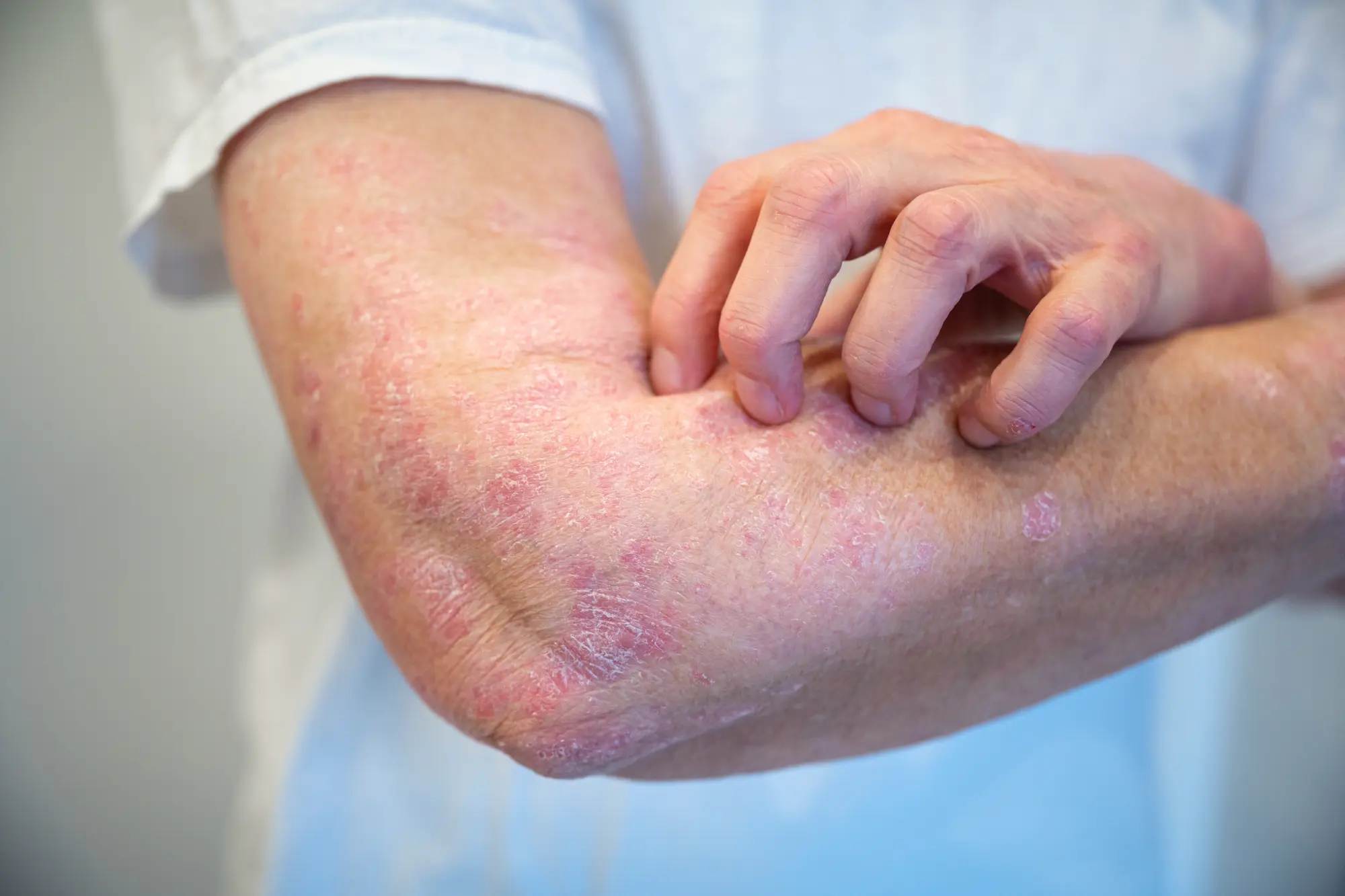
Psoriasis Treatment
- Home
- Psoriasis Treatment
What Is Psoriasis?
Psoriasis is a chronic skin condition driven by the immune system. It causes red, scaly patches—called plaques—to appear on the skin. These patches may itch, crack, burn, or bleed, and they tend to flare up in cycles triggered by stress, weather changes, illness, or skin injury.
Some patients also develop psoriatic arthritis, a related condition that causes joint pain and stiffness. While less common, it’s important to catch early, as untreated joint damage can become permanent.
What Are the Symptoms of Psoriasis?
Psoriasis can affect different parts of the body and appear in many forms, but common symptoms include:
- Thick, red plaques with a silvery scale
- Itching, burning, or stinging in affected areas
- Dry, cracked skin that may bleed
- Thickened, pitted, or discolored nails
- Flaky buildup on the scalp (similar to dandruff)
These symptoms often appear on the scalp, elbows, knees, and lower back, but they can appear anywhere—including sensitive or hard-to-see areas.
What Causes Psoriasis?
Psoriasis is not contagious. You can’t catch it or pass it to others.
It’s believed to be caused by an overactive immune system that speeds up the skin cell cycle. Instead of shedding skin every 30 days, your body produces new skin cells every 3–4 days, which pile up on the surface and form plaques.
Psoriasis tends to run in families, but flare-ups are often triggered by:
- Illness or infections
- Cold, dry weather
- Stress
- Certain medications
- Skin injury or sunburn
- Smoking or alcohol use
Psoriasis Treatment Options
There’s no permanent cure for psoriasis, but many treatments can reduce symptoms, clear the skin, and prevent flare-ups. Your provider will tailor a plan to your needs based on the type and severity of your psoriasis.
Treatment options include:
- Topical treatments: Corticosteroids, vitamin D analogs, or VTAMA™ (tapinarof) cream to reduce inflammation and scaling
- Oral medications: Such as methotrexate or newer immunomodulating drugs
- Biologic injections: Targeted therapies that address the immune response driving psoriasis
Many patients find the best relief through a combination of treatments, adjusted over time as symptoms change.
Managing Psoriasis
Psoriasis is a lifelong condition, but it doesn’t have to control your life. Our dermatology team can help you manage it with a combination of medical therapy and practical daily support.
We’ll work with you to:
- Identify your triggers
- Develop a skin care routine that protects and soothes
- Make healthy lifestyle changes that support skin and immune balance
- Adjust your treatment as your needs evolve
Regular follow-up with a board-certified dermatology provider is key to keeping flare-ups in check and protecting your skin long-term.
Schedule an Appointment & Get Relief from Psoriasis
Psoriasis can be physically uncomfortable and emotionally draining, especially during flare-ups. Whether you’re newly experiencing symptoms or have lived with psoriasis for years, finding the right treatment can make a lasting difference.
At Biltmore Dermatology, we offer compassionate, personalized care to help you manage symptoms, identify potential triggers, and reduce flare-up frequency. Our board-certified dermatology provider will evaluate your condition and recommend a treatment plan tailored to your skin and lifestyle, including topical solutions, prescription medications, or advanced therapies.
You don’t have to manage psoriasis alone. Schedule a consultation at our Terre Haute or Vincennes office today. Contact us to book your appointment—or walk in for care, no referral needed.